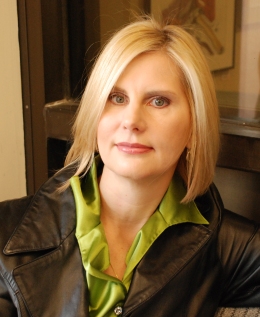 Last Saturday at the NJSCBWI Craft Day, I attended Charlotte Bennardo’s workshop on how research can improve your book and what we can find if we knew where to look.
Last Saturday at the NJSCBWI Craft Day, I attended Charlotte Bennardo’s workshop on how research can improve your book and what we can find if we knew where to look.
Charlotte is a wealth of information, so of course I asked if she would write an article so I could share her knowledge with you. I have taken what she sent and broken it up into three parts. Parts two and three will be posted on the next two Tuesdays.
Here is Part One:
Building a Research Data Base for Your Novel
By Charlotte Bennardo
You have a great idea for a novel. It’s purely fiction, so you don’t need to do research. Right?
Wrong.
Every good novel has research. You don’t want to start your historical middle grade saying Abraham Lincoln was the 23rd president (he was the 16th). Even if you write science fiction, there are certain laws you have to obey, like the Laws of Physics. (Only super smart people like Stephen Hawking can get away with breaking those laws because they know how to do the math.)
If you have blatant errors of fact, even in a novel that’s pure fiction, agents and editors (and readers) are going to call you on it. Don’t get caught looking stupid.
But research isn’t just going to the library anymore.
Here’s how to build a database of research for your novel:
Start with the obvious (even if you think you know it): Wikipedia. Use this first to get a general idea, i.e. how many years did the Civil War last? Second, use it to mine for sources. Some of the articles on Wikipedia list educational, academic, scientific, and other credible sources and links. DO NOT rely on Wikipedia for accuracy, as there have been many instances where the facts were wrong so never cite it as a source.
Google is a marvel of easily accessed information, so much so that “googling” something is acceptable speech. Everyone knows what you mean. But Google has expanded to more than answering general questions; under its umbrella are: Google maps, dictionary, YouTube, Earth, Translator, Scholar. That means you can find the location and directions to any place on Earth, find out the meaning of any word, see videos from around the world, virtually walk down any street in the world, translate any known language in the world, and ask scholarly questions. If you can’t find basic information here, either you’re not asking the right question, i.e. it’s not specific enough, or there might not be an answer (How many licks to the center of a Tootsie Roll pop?)
The library is still vital. This is a good place for a deeper research than Wikipedia. Many libraries belong to a ‘system,’ like my county library. I can request books not only from other branches around our county, but from other cooperating libraries which loan out books. Your librarian can help you find that book you need and may not have. Also, there are specialized libraries, like the Ronald Reagan or Jimmy Carter libraries which contain all the info on that president’s administration, sometimes even personal letters and photos. There are university, law, medical, and other specialized libraries, but some have restrictions so it’s best to find out by emailing or calling ahead of time to see if, when, and how you can get access or have someone get you the information you need. Finally, research librarians may be able to pull up research sources that aren’t listed in your library. And they do love a research puzzle! Many of them will happily hunt down obscure facts for you if you ask nicely (but don’t expect them to do all your research for you).
The Library of Congress has special mention here because it’s so awesome. This library has a copy or access to every book published in the United States, and untold more from around the world. The librarians also have access to rare books, documents, photographs, film, audio recordings, maps, software, podcasts, and believe it or not, blogs. The wonderful people who work there are employed by your tax dollars, so don’t be afraid to ask them for help. I have found that they too love a research challenge. Plus, they will photocopy the information and mail it to you. Service just doesn’t get any better than that! As always, be polite, don’t ask them to do all your research, and be specific about what you need.
Almost every government agency has a website and a contact person. This gives you access to the Departments of Education, Defense, Homeland Security, Housing, etc. You can also get access to the FBI, Congress, the White House, or your local representatives. Look under “Contact” and it will tell you how to get in touch. When asking for information, it’s always a good idea to tell them you are an author and that you are requesting this information for a novel about XXX. Most agencies are happy to help, but some, like the FBI, require you to fill a form out. Under the Freedom of Information Act, if it’s not classified for national security, you have the right to it.
 [Just beware that asking about certain types of information, i.e. presidential security, hacking, weapons, etc. will get you flagged for a ‘peek’ by either the FBI or Homeland Security. If you do not want this scrutiny, maybe ask a librarian to help you get the information. For our book Blonde OPS, which deals with a 16-year-old hacker girl who runs across the FBI, the CIA, and the First Lady, I was flagged and my browser temporarily shut down.]
[Just beware that asking about certain types of information, i.e. presidential security, hacking, weapons, etc. will get you flagged for a ‘peek’ by either the FBI or Homeland Security. If you do not want this scrutiny, maybe ask a librarian to help you get the information. For our book Blonde OPS, which deals with a 16-year-old hacker girl who runs across the FBI, the CIA, and the First Lady, I was flagged and my browser temporarily shut down.]
Some of these sites will even send you news alerts (like the National Oceanographic or Health sites). And you can even follow them on Twitter and Facebook. (President Obama’s twitter handle is @POTUS). And in case you didn’t know, even INTERPOL has a website you can access for info.
Here is a little bit about Charlotte:
Until Hollywood calls, Charlotte lives in NJ with her husband, three children, two needy cats and sometimes a deranged squirrel. She is the co-author of Blonde Ops (St. Martin’s/Dunne) and the Sirenz series (Sirenz, Sirenz Back In Fashion, Flux). She’s written for magazines and newspapers. Currently she’s working on solo sci fi, ghost, and time travel novels and loves to hear from fans on Twitter (charbennardo) or through her blog, http://charlotteebennardo.blogspot.com/
Here is an Excerpt:
Staying in the shadows, I walked around the warehouse, and spying the faded Fredo Transporto sign, I knew I was in the right place. Around the corner of the building, I passed cracked windows grimed over with soot and dirt and eventually found a door. After a quick glance to make sure no one was around, I ran up to it and stopped in dismay. It had an electronic keypad lock. Cracking this would cost me extra time that I didn’t have. Lucky for me, it was a cheap setup. I didn’t have the equipment for disabling a more sophisticated system. Carrying the necessary tool in my luggage, even if I had it, would have instantly gotten me yanked out of the security check into a room for a full body search and interrogation.
Sliding my backpack off, I pulled out my penlight. A swift look up assured me I was still alone. Using my hand to shield the light, I turned it on and searched the ground near the door.
Not too far from the walkway was a patch of dirt, bare of grass, dried and hard packed. I ground it with my foot, creating a powdery dust. I scooped up a small handful, went back to the door, and gently blew dirt onto the keypad. It was almost like dusting for fingerprints. The penlight showed it stuck to four numbers: 3, 5, 6, and 8, where residual skin oils remained from repeated pressing on the pad.
That meant only twenty-four possible combinations if it was a four-digit code string. It wasn’t a high-end lock, so it probably had a shorter sequence of numbers and wouldn’t freeze up with too many wrong combos, like a computer would after three incorrect passwords.
I began with 3, 5, 6, 8.
Then 3, 6, 5, 8.
Sweating, I rushed. Being caught picking a lock on a warehouse would be the most legitimately jail-worthy thing I’d done to date, taking me from hobbyist-hacker to criminal-cracker.
Focus! If Candace or the man shows up early…
5, 6, 3, 8.
Click!
You can buy Charlotte’s books at your local bookstore or online at:
Remember to stop back next Tuesday for Part Two of “Building a Research Database for Your Novel.”
Talk tomorrow,
Kathy
What’s funny is that excerpt is one that got me flagged and my browser shut down (I looked up ‘how to hack a digital lock.’).
LikeLike
By: Charlotte on November 10, 2015
at 10:56 am
Thank you Charlotte for confirming what I am finding in well written work. It’s all in the details.
After reading your sample, I got your book and can’t wait to start reading.
LikeLike
By: tinksiescott10 on November 10, 2015
at 11:31 am
I also attended Charlotte’s workshop…a wealth of information that will come in handy no matter what the next project may be. Thanks Charlotte! xo
LikeLike
By: darlenebeckjacobson on November 10, 2015
at 12:05 pm